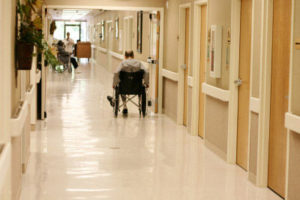 Click here to tell us about your injuries
Click here to tell us about your injuries
In the United States, more than 1.5 million seniors live in nursing homes or assisted living facilities. In a recent congressional report, over 30% of the nation’s nursing homes were cited for an abuse violation which caused harm between January 1999 and January 2001. Over 2,500 of those violations were serious enough to cause actual harm or to place residents in immediate danger of death or serious injury.
If you have a loved one who is a resident of a nursing home, identifying potential abuse requires careful monitoring. Because many nursing home residents have limited communication abilities, family and friends must vigilantly look for the signs of nursing home abuse on their visits to the facility.
Many nursing home residents may be hesitant to complain about abuse or neglect for fear that they will lose the support and care that they do have or that their complaints will cause the caregiver to retaliate. When abuse or neglect occurs at the hands of licensed professionals, such abuse should be severely punished.
Often, nursing homes are run with money making as the top priority rather than the care of its patients. Some nursing homes employees have minimal qualifications and insufficient training. This results in inadequate staffing and often high turnover within the facility. Generally, a Certified Nursing Assistant is charged with 15-20 residents during each 7 ½ hour shift. With this ratio of patient to caregiver, it is difficult to ensure that your loved ones will be protected.
During your visits to family members who are nursing home residents, look for the commonly observed signs of physical abuse:
- Unexplained injuries
- Caretaker not adequately explaining condition
- Open wounds, cut, bruises or welts
- Resident reports of being hit or mistreated
- Hitting, pushing, shaking, beating
- Forcing an older person to stay in a room
- Unreasonable physical restraint
- Deprivation of food and/or water
- Forcing residents to stay in their rooms
- Giving too much medication
- Not providing needed medication
Look for the following signs of mental abuse:
- Sudden behavioral changes
- Fear or hesitance
- Depression
- Unjustified Isolation
- Derogatory Comment by Staff
If your elderly loved one has been abused, neglected or injured while in a nursing home, contact our office today.
At the Ritchie Law Firm, we work hard to protect the rights of our clients.
Call us today at
1-800-277-6124 or click here to tell us about your injuries.
We look forward to helping you.
The lawyer you choose can make a difference
Call the Ritchie Law Firm To Protect Your Rights
1-800-277-6124
